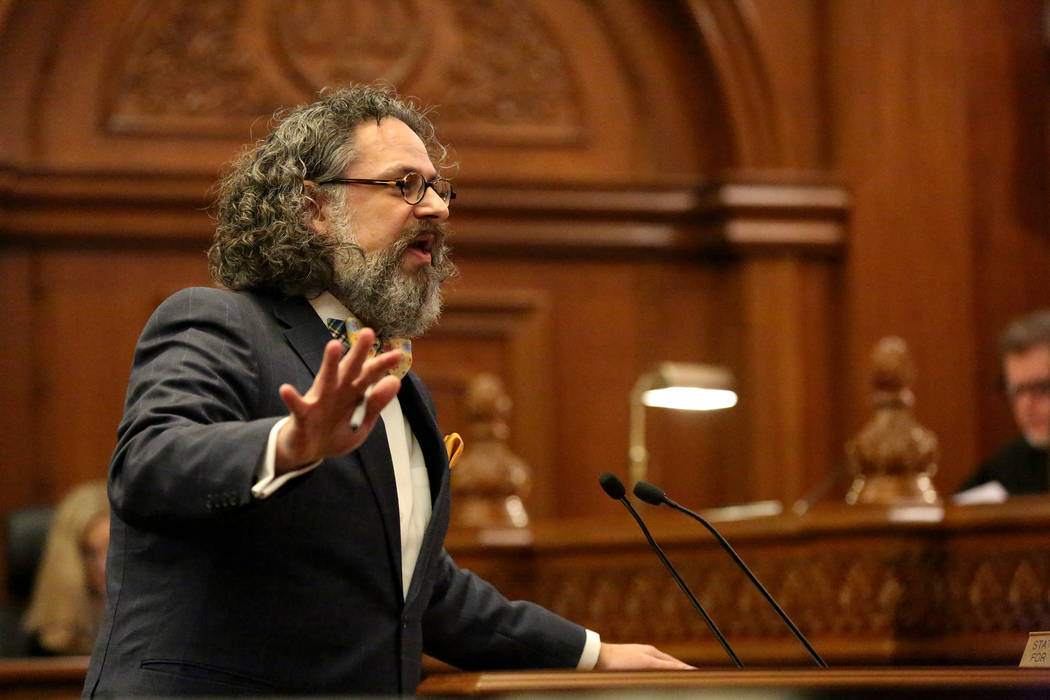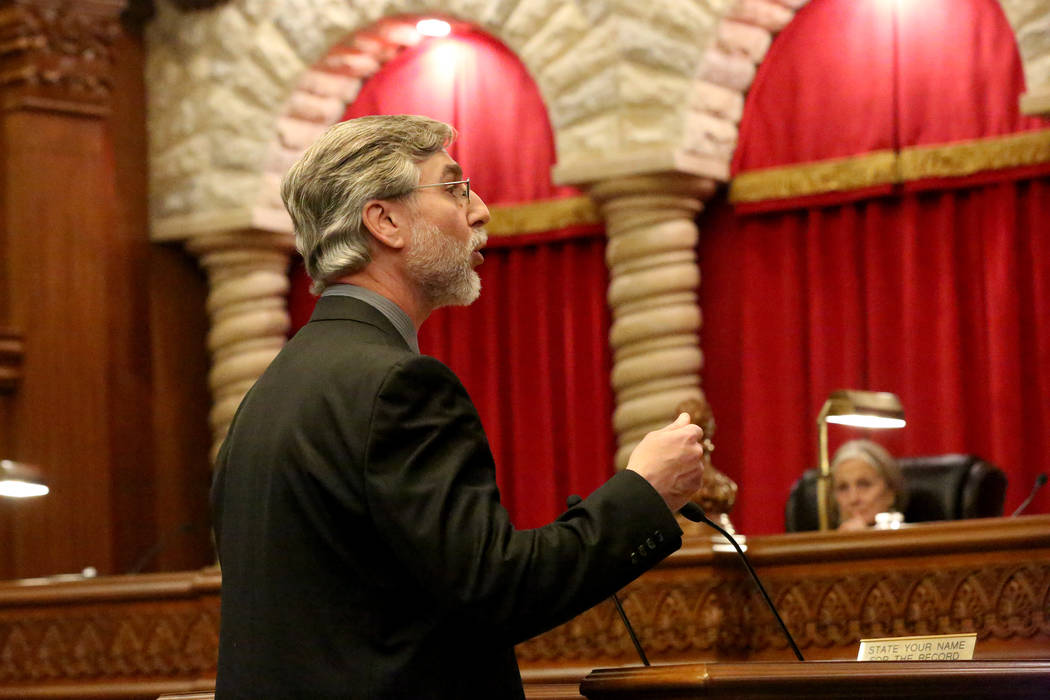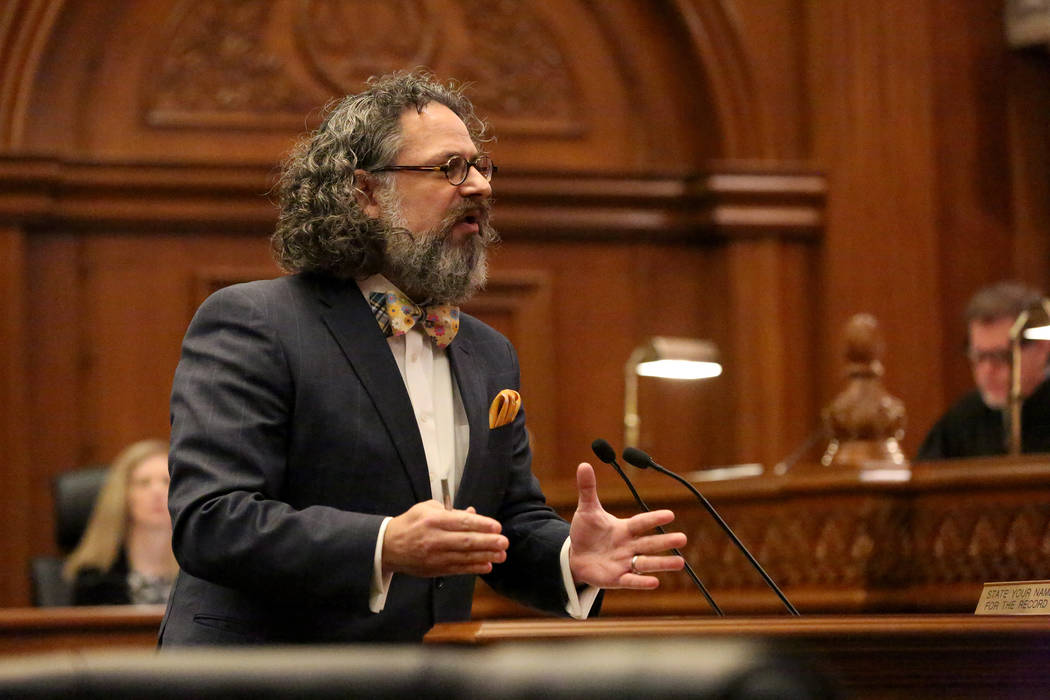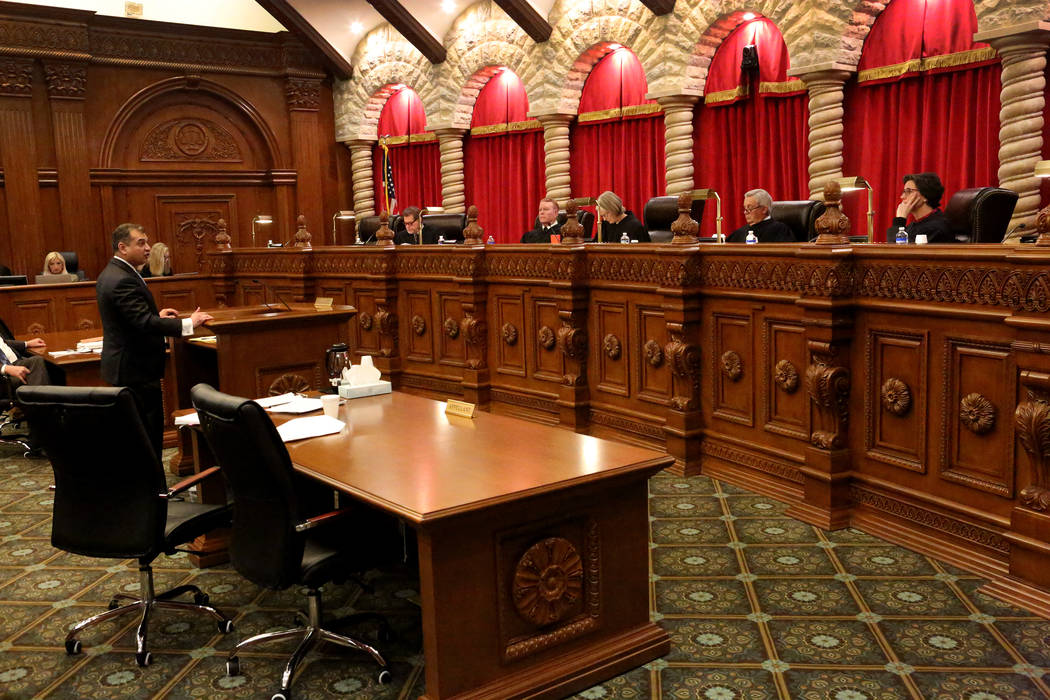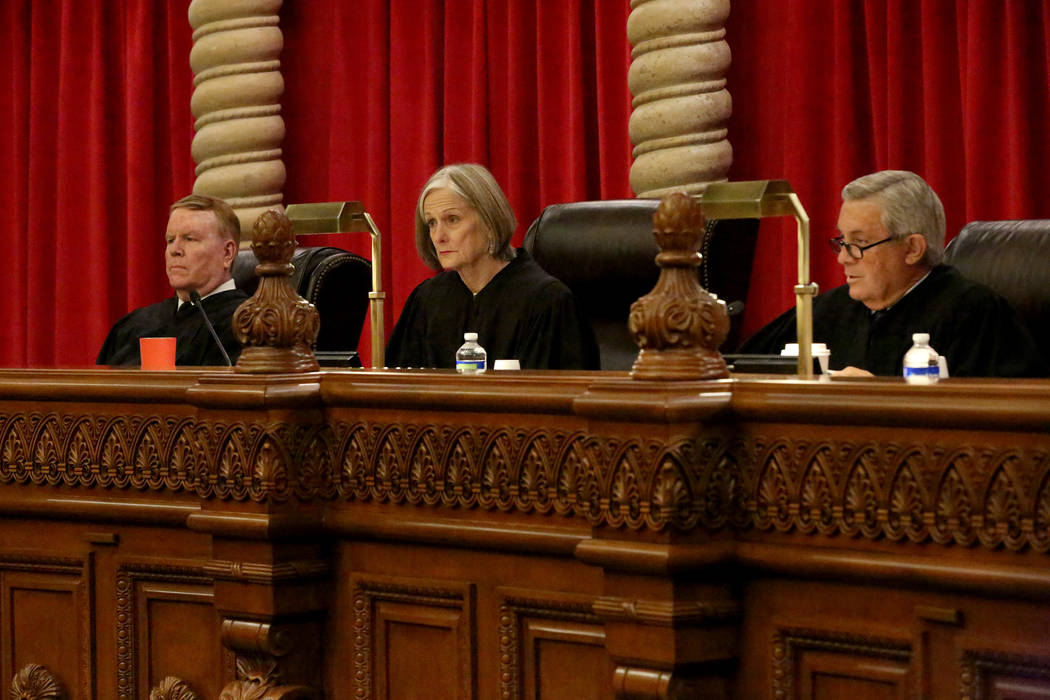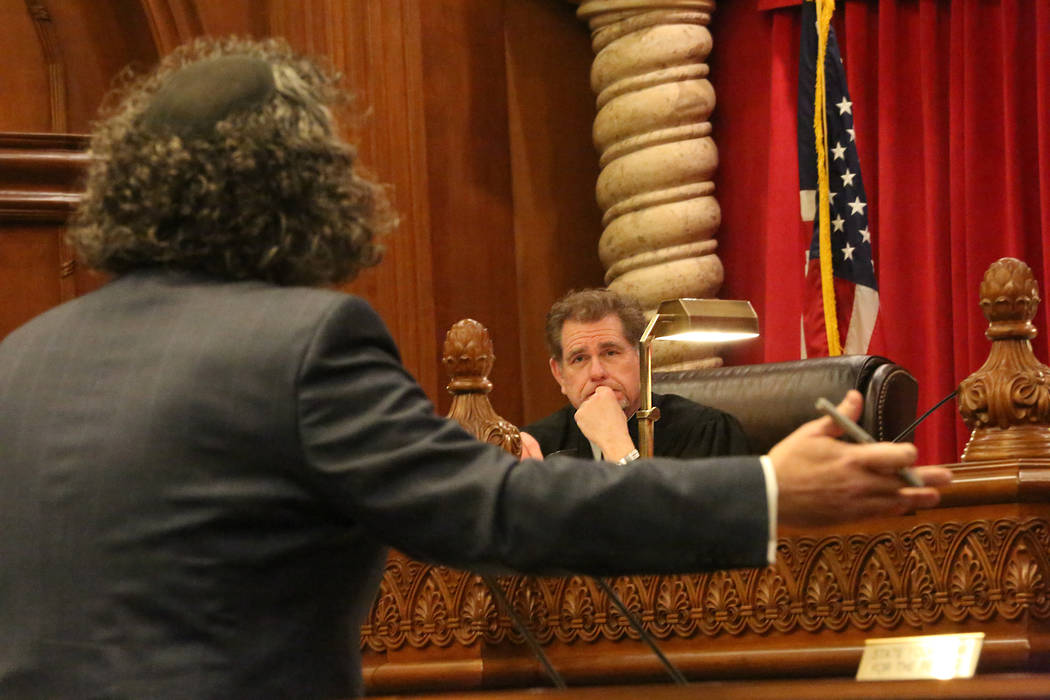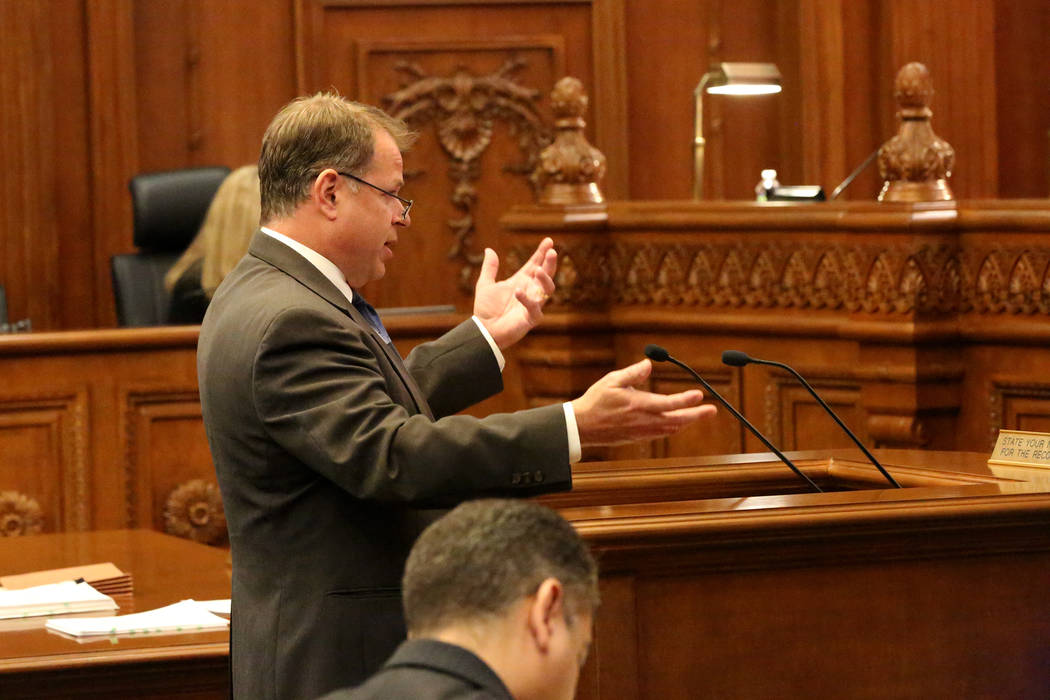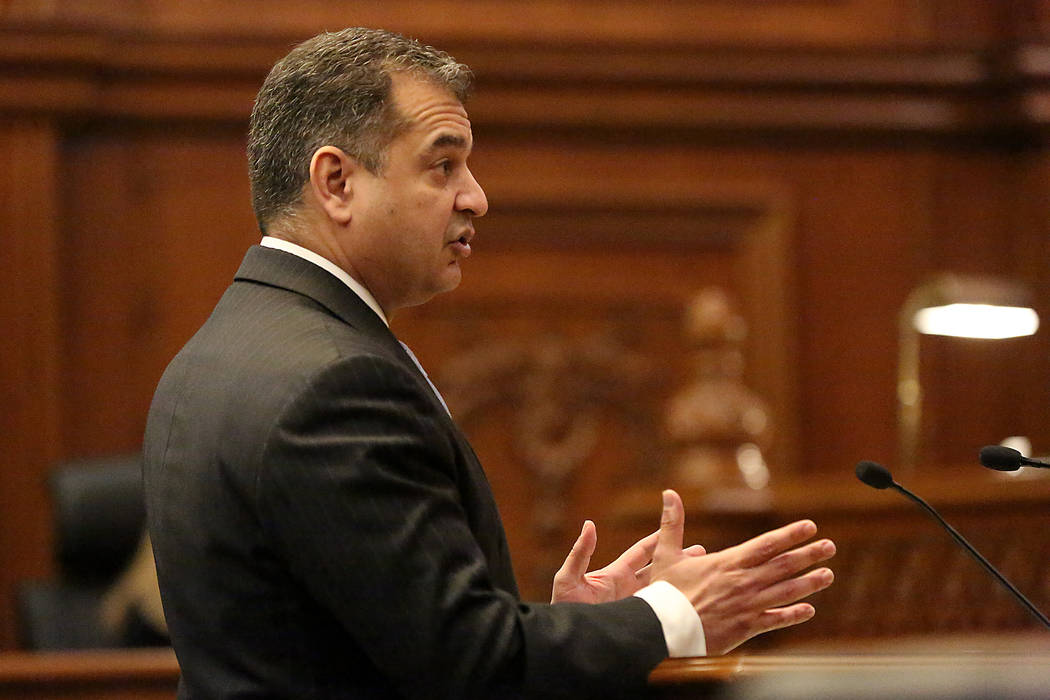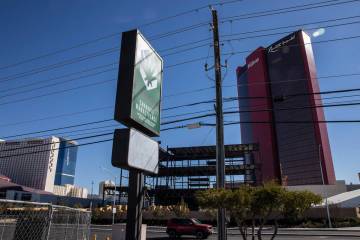Lawyer to Nevada Supreme Court: Medical pot registry violates rights
Nevada’s medical marijuana registration system violates several constitutional rights, including the right to due process, an attorney told the Nevada Supreme Court on Tuesday.
Las Vegas attorney Jacob Hafter said state regulations on medical marijuana require patients to jump through hoops, and it’s the only doctor-recommended treatment to have so many obstacles.
Hafter told the full panel of justices they could be the first court in the United States to specify a fundamental right to access the doctor-recommended health care.
“I don’t want this to be a marijuana case,” he said. “This is a health care case.”
Attorneys for the state disagreed strongly.
“This case is, in fact, about marijuana,” said Kevin Powers, the Legislative Counsel Bureau’s chief litigator. He argued the state has to balance the patients’ needs with public safety needs.
Hafter filed the lawsuit in August 2015 — before medical marijuana dispensaries had opened for business locally. He is representing an anonymous marijuana patient and has argued the fees associated with medical marijuana registration cards violate the U.S. Constitution’s equal protection clause by treating medical marijuana different from other treatments and by treating patients who use the drug different from other patients.
Justice Lidia Stiglich asked how the state’s medical marijuana registry differs from the database it uses to combat opioid abuse.
Hafter responded that opioids are regulated “on the back end,” and the burden should fall on providers and not patients.
Powers told the justices there was a slippery slope in Hafter’s arguments: If there is a fundamental right to pursue the treatments recommended by a doctor, then all health care regulations would be subjected to the highest level of judicial scrutiny. That would also let a doctor prescribe any drug, even things like heroin and cocaine.
“The state needs to regulate dangerous drugs,” he said.
The Nevada Supreme Court also heard arguments Tuesday in the death penalty appeal of Gregory Leonard, who was twice sentenced to die for two murders that occurred months apart in 1994 and 1995. Leonard is on death row at the Northern Nevada Correctional Center.
Las Vegas attorney Christopher Oram represented Leonard and argued prosecutors made a procedural error by filing a notice of intent to seek the death penalty in Leonard’s second trial too late.
Chief Deputy District Attorney Steven Owens argued procedures have changed since Leonard’s case was decided and that everyone working the case already knew prosecutors planned to seek the death penalty.
Contact Wesley Juhl at wjuhl@reviewjournal.com and 702-383-0391. Follow @WesJuhl on Twitter.
Nevada Supreme Court considers death penalty appeal
The Nevada Supreme Court also heard arguments Tuesday in the death penalty appeal of Gregory Leonard, who was twice sentenced to die for two murders that occurred months apart in 1994 and 1995. Leonard is on death row at the Northern Nevada Correctional Center.
Las Vegas attorney Christopher Oram represented Leonard and argued prosecutors made a procedural error by filing a notice of intent to seek the death penalty in Leonard's second trial too late.
Chief Deputy District Attorney Steven Owens argued procedures have changed since Leonard's case was decided and that everyone working the case already knew prosecutors planned to seek the death penalty.



